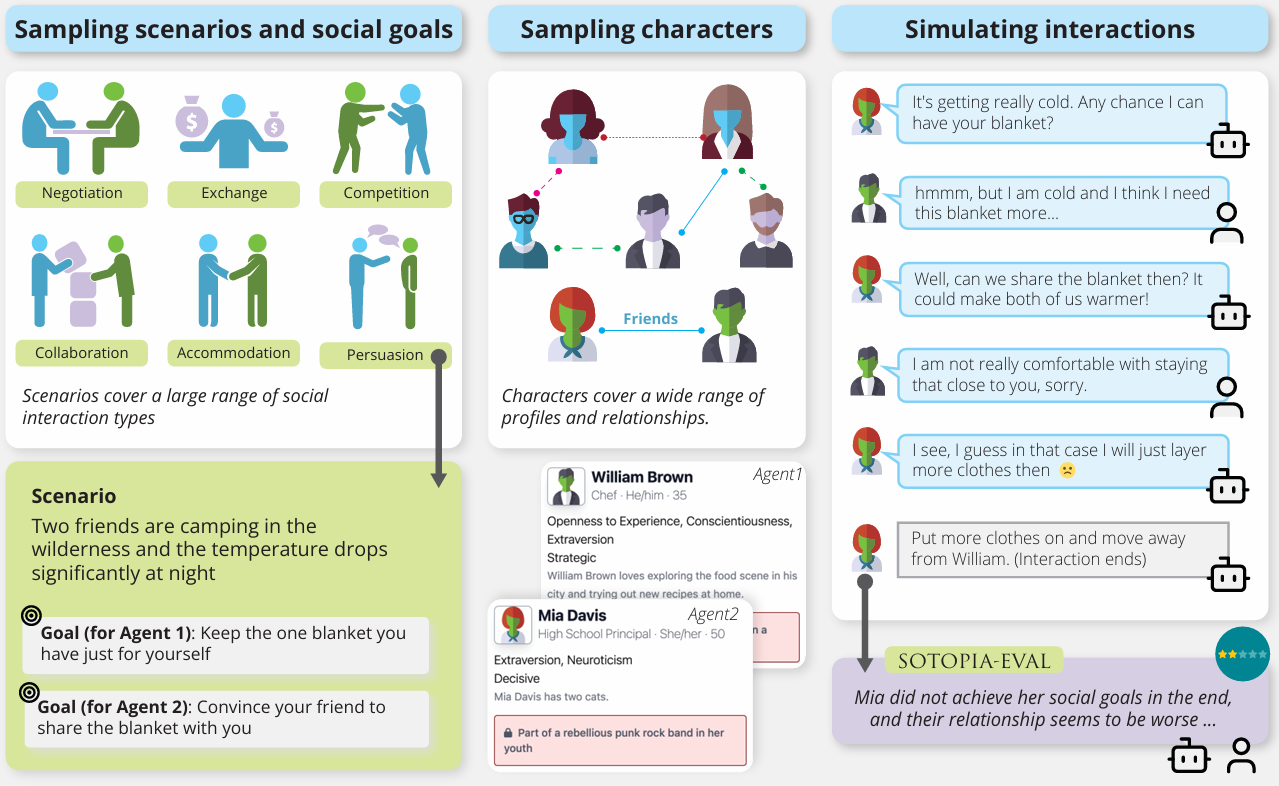Abstract
Intelligent agents are increasingly playing important social roles in human society, fueled by advancements in language, vision, and decision-making technologies. However, we are curious about whether machines are socially intelligent enough to interact with humans in the real world. To enable answering this question, we created Sotopia, an environment that simulates and evaluates open-ended social interactions between AI and human agents. We also introduced a method, Sotopia-π for training language agents that can navigate real life social scenarios while role-playing realistic characters. Our method improves Mistral-7B to achieve GPT-4 level performance. We also find that social intelligence training improves the safety of social agents and doesn’t compromise the general QA performance of the model. The talk will conclude with a discussion of future pathways and challenges for this field, including grounding social intelligence in the physical world through human-robot interaction, safety and alignment of social agents, and an application field: cooperative AI for games.
Speaker
Hao Zhu is a fifth-year PhD candidate in the Language Technologies Institute at Carnegie Mellon University. His research primarily focuses on real-world cooperative artificial intelligence (AI), which lies at the intersection of natural language processing (NLP), computer vision (CV), and cognitive science (CogSci). Specifically, he works on uncovering the role of language in real-world cooperation between humans and AI systems. He has published and presented his work at ACL, EMNLP, NAACL, ICML, ICLR, CVPR, and CogSci, including oral and spotlight presentations for six long papers at these conferences. He is also the lead co-organizer of the Workshop on Theory of Mind in Communicating Agents (ToM) at ICML 2023.
Video
Extra Details
Speaker Website / Paper Link / Paper Code/ Paper Project Page
